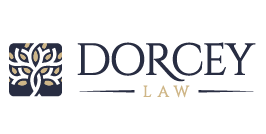Estate planning can be tedious, but you can build a strong future for you and your family when you have the right tools. Keep reading for a step-by-step estate planning checklist.
Step #1: Organize Your Assets
One of the most time-consuming steps in the process is collecting documentation for your assets. Cars, real estate, inheritance money, and investments are all assets that can be a part of your estate plan. Before you draw up the estate planning documents with a lawyer, you'll need to have your assets organized and well-documented.
Additionally, you will need to designate ownership of these assets. In other words, you should review any title documents that might indicate ownership to be sure that what you have are things you own. Joint ownership is a major headache during estate planning, so it's best to avoid it if possible.
Step #2: Evaluate Your Debts
Your loved ones can easily inherit debt, and any debt left over may be paid for by selling your assets in probate court. This isn't always true, but assets that go through probate may not end up with the same value as you originally intended to leave to y our beneficiaries.
It's also important to ensure that your loved ones are taken care of through auto, homeowners, or life insurance policies. The payout from these policies can help bridge the gap and give your family financial peace of mind so they can focus on carrying on your legacy.
Step #3: Power of Attorney
Powers of attorney can be far-reaching, so it's critical that you choose someone you trust. Before you create a will, start thinking about who you would want to make medical and/or financial decisions on your behalf if you become unable to do so yourself.
A POA can become effective at any time, even if you are available and not incapacitated. As a part of the POA selection process, consider when you'd like a power of attorney to become effective and how much decision-making power you want them to have. Speak to a trusted legal representative about your situation, and they can help you make a wise decision.
Step #4: The Will
Most people are at least familiar with the concept of a "last will and testament." Essentially, a will is a directive that explains your wishes regarding:
- Medical treatment
- Funeral preparations
- Asset distribution and management
- Beneficiaries
- And more
Wills are powerful documents, but they can be contested in court if someone in your family claims you were not of sound mind when you wrote the will. Your will also includes your decisions regarding beneficiaries and power of attorney. That's why you must have an attorney help you write the will to ensure that your affairs are handled as you intended.
Step #5: Designate Beneficiaries
Choosing beneficiaries may seem like a no-brainer, but it's more complicated than you think. You'll want to choose loved ones you trust to take care of property, investments, or business assets and properly manage them.
Also, keep in mind that leaving a business or investment to a minor may involve several extra steps like creating a trust and designating a trustee. Always speak to an attorney about your beneficiaries to ensure that you are following all the necessary steps to provide for your loved ones.
Step #5½: Other Items
No two estate plans are the same, and every family is different, so there might be various loose ends to think about after you've drafted the will. Plus, there are some things you'll need to regularly review to ensure that your affairs are in order.
- Look through your documents and plans to see if you need to update them regularly. Some insurance policies need to be updated over time.
- Assigning a transfer on death (TOD) designation can help you avoid the probate process. A TOD allows you to designate certain assets to beneficiaries and family members without going to court.
- Keep a running list of all memberships like veteran's associations, AARP, or accreditation associations. Some of these organizations have accidental life insurance benefits for members, which can cushion costs after death. Additionally, let your beneficiaries know about any charitable organizations you support. If you would like donations in your memory, it's best to plan it out ahead of time.
Estate planning is complicated, but the result is peace of mind for you and your family. If you need help with your estate plan, don't hesitate to contact Dorcey Law Firm.


